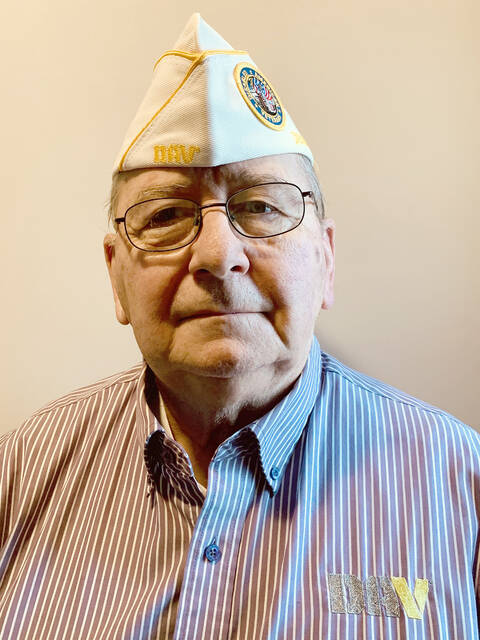Veterans have often expressed that they are somewhat confused concerning the number of screenings, examinations, and registries administered by the Department of Veterans Affairs (VA) and what are their responsibilities.
This column will answer many questions on this topic and address veterans’ concerns.
The VA is composed of three (3) distinct administrations: the Veterans Health Administration (VHA); the Veterans Benefits Administration (VBA); and the National Cemetery Administration (NCA).
To obtain a Compensation and Pension (known as a C & P) Examination, a veteran must submit an Intent to File (ITF) and other required paperwork to the VBA. This is the only examination involving the VBA.
The C & P Exam is part of the claim decision process to help determine service connection and rate a disability for purposes of compensation.
The C & P Exams are administered as a part of the VBA claim process, but performed by the VHA or contracted providers.
Veterans should be aware that enrollment in VA medical care is not required to receive disability compensation. However, the C & P Exams may provide a basis for eligibility to enroll in VA medical care and services.
Toxic Exposure Screenings are not part of the VA benefits claims process. These screenings were required by Section 603 of the Sergeant First Class Heath Robinson Honoring our Promise to Address Comprehensive Toxics (PACT) Act of 2022.
Section 603 required the VA to offer toxic exposure screening to all enrolled veterans at least once every five (5) years. The purpose of the screening helps identify veterans with exposure concerns and advises them how to obtain medical services, resources, and benefits.
If a veteran has toxic exposure concerns, the VA staff is required to provide them with additional resources, information and to advise them on the next steps. The exposure screenings will only take less than ten (10) minutes.
The toxic exposure screenings significantly differ from the Registry Evaluations. Registries are under the supervision of the VHA. The veteran’s data and information collected is used primarily for quality improvement and research.
The collected information is not utilized for clinical care or to determine eligibility for health care or benefits. There is no requirement to be enrolled in VA health care or receive VA benefits to participate in a registry.
The Veterans Health Administration (VHA) maintains six (6) Registries. They are: Agent Orange; Airborne Hazards and Open Burn Pits; Depleted Uranium; Gulf War; Ionizing Radiation; and Toxic Embedded Fragments.
These VA Health Registries are free, voluntary medical assessments for veterans who may have been exposed to certain environmental hazards during their military service. They normally take approximately 60 minutes and are performed by a VA or military health provider.
The Agent Orange Registry is based on the veterans’ recollection of service, not on their military service records. The Registry will not confirm exposure to Agent Orange and is not a disability compensation exam. Veterans’ families are not eligible for an Agent Orange Registry Health Exam.
The Airborne Hazards and Open Burn Pit Registry, often referred to as “Burn Pit Registry, is a critical tool that is advancing research through combining Veteran and service member data.
The registry enables VA to identify and research health challenges of Veterans and service members who were exposed to airborne hazards and burn pits during their military service.
On August 1, 2024, the VA and U.S. Department of Defense (DoD) announced critical updates to the registry including: (1) the broadening of participation criteria; (2) clear opt-out procedures; and (3) automatic inclusion procedures based on DOD records that vastly expand the number of participating veterans and service members.
Over time, the technical knowledge gained through airborne hazards research will be used to fuel advancements in medical treatments, more precise predictive medicine, inform decisions related to presumptive conditions, and deliver targeted proactive and preventative care.
While participation in the registry does not impact an individual’s care or benefits, veterans and service members who participate are helping to improve the care and benefits for generations of veterans and service members to come.
For any of the six (6) registries, veterans should contact the Cincinnati VA Medical Center’s Environmental Health Coordinator.
The Million Veteran Program (MVP) was a type of Registry that collected information for a specific type of research. The VA-collected data will be used to learn how genes, lifestyle, and military experiences and exposures affect health.
Veterans provide informed consent, a blood sample, and secure access to their health records with MVP. There is no requirement to be enrolled in the VA health care system.
The MVP has already reached its goal of one million participants but is still seeking veterans to add to the clinical base that they have collected. Veterans who have not participated in the MVP, should by contacting the VAMC Cincinnati.
My Opinion: While participation in any one of the above cited registries does not impact a veteran’s disability compensation benefits, veterans who participate are helping to improve the long-range medical care and benefits for generations of veterans, service members and families to come.
BioSketch: John Plahovinsak is a retired 32-year Army veteran, who served from 1967 to 1999. He is the Disabled American Veterans (DAV) Department of Ohio’s Hospital Chairman and can be contacted at: [email protected].

